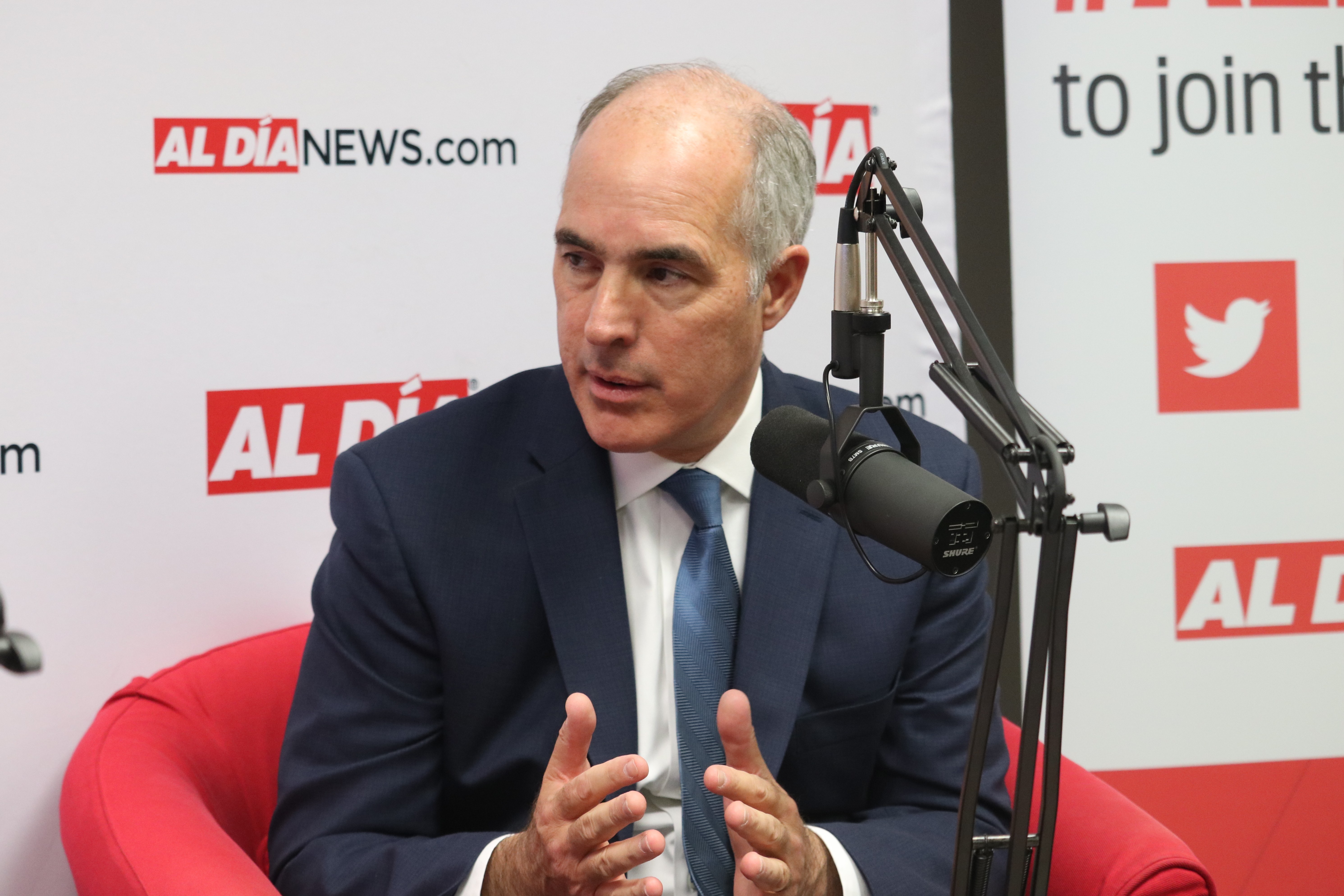
House formalizes Trump impeachment inquiry, here are the Senate's next steps
The House of Representatives has voted to moved forward with Trump's impeachment process, what now? Senator Bob Casey explains what will happen once the…
On Oct. 31, The House of Representatives voted to move forward with President Trump impeachment process, with 232 votes in favor and 196 opposed to the inquiry.
The President called the inquiry a “witch hunt,” and has accused people of trying to “lynch” him.
With the inquiry moving to the Senate, things are much more complicated than voting “Yea” or “Nay.”
Now that the inquiry has passed the House, the Senate is the next stop. So, What now?
Pennsylvania Democratic Senator Bob Casey visited AL DÍA a week before the House impeachment vote, this is what the Senate would do next.
If enough articles of impeachment are found during the inquiry, the Senate needs to be prepared by “a way of procedure.”
“That means the basic procedures of the government impeachment trial. There's not necessarily a lot of clarity there, because sometimes the procedures that govern an impeachment trial are decided upon in the moment, where the Senate has to come together and almost decide, ‘well how are we going to conduct ourselves?’” said Senator Casey.
“Both parties should be very cognizant that one of our first responsibilities would be to make sure that the process is fair, that there's enough time to consider the evidence,” he added.
Once the impeachment process moves to the Senate, Senator Casey and the rest of the Senate will become the jury.
They will have to listen as the House tries to demonstrate if the President of the United States of America has abused his power.
“What I don't know yet is whether or not in addition to the evidence the House has gathered, can the Senate consider other additional evidence? My guess is that we can. There would be additional evidence introduced, especially by those who are taking the president's defense,” said the senator.
RELATED CONTENT
Democracy will turn into a “Law and Order” episode, complete with a person on trial, a prosecutor, a jury and a judge, but without the expectation of proving innocence “beyond a reasonable doubt.”
“For example, if you're a juror in a criminal trial, what the judge instructs you to do among other things is you have to prove guilt beyond a reasonable doubt. We wouldn't have that charge. We would have a much lower standard. We can make an assessment on our own, [based on] what we believe to be abusive power,” said Senator Casey.
If President Trump is forced to face a trial in the Senate, and his prosecution manages to convince at least two-thirds of the Senate of his guilt, he will be subject to removal from office.
The inquiry being dismissed, without any review of the evidence, is at the forefront of the senator’s worries.
Sen. Casey’s concerns on fairness and timing are due, in part, to Senate Majority Leader Mitch McConnell’s mixed signals.
Senator Casey believes that Senator McConnell left open the possibility, “if not the likelihood, that he would entertain a motion to dismiss.”
“As soon as the case lands there [the Senate], some Republican senator might stand up and say to the Chief Justice, ‘I hereby move to dismiss this article of impeachment or use.’ And then there would likely be a vote on whether to dismiss the proceeding right then and there. Right at the beginning,” said the PA senator.
“I think there's plenty of evidence for an impeachment inquiry. But, I also have to make a separate determination as to whether or not that impeachable conduct is enough to remove him from office. And that's a different standard,” the senator said.










LEAVE A COMMENT: